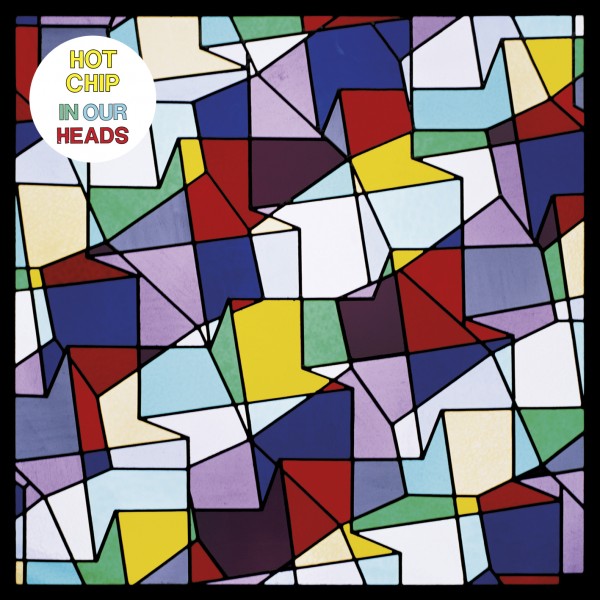Few bands can claim to be a subgenre unto themselves, but after becoming acquainted with In Our Heads, I am of the firm belief that Hot Chip has joined that category. Though it is merely a cautious step in the band’s evolution, it manages to highlight Hot Chip’s unique approach to the marriage of music and lyrics. It’s their most accessible and consistent album to date, and it doesn’t have a single weak track on it. Yet for the most part, In Our Heads takes few risks, sticking to familiar musical arrangements and tempos for its tunes. The songs, excellent though they are, are polished to such a ready-for-radio varnish that’s almost noxious. Their construction, too, feels radio-purposed. You’ll find no mid-song games of “Sounds of the Studio” like on “Shake a Fist,” and no dissonant synth hooks like on “One Life Stand” or “Take It In,” nor will you find the audacity of… well, anything from Coming on Strong. And you won’t find the sublimely subtle arrangement of “Ready For The Floor.”
Yes, this album’s sound is colossal, as if made to fill the larger venues to which Hot Chip have graduated as a result of their increasing popularity. The seven-minute stretches “Flutes” and “Let Me Be Him” are particularly epic in scale and in execution. In places, the radio polish works to the benefit of the song, namely in the case of the album’s slow ballads (“Look At Where We Are” and “Now There Is Nothing.”) which have on previous releases tended to rank among the more skippable Hot Chip tracks (“Slush” from One Life Stand comes to mind.) On In Our Heads, they demand absolute attention and don’t overstay their welcome, thanks in part to the polished production. In the case of the upbeat numbers, it does little to improve them. “Ends of the Earth,” for one, could have done perfectly well without as much of that ominous choir it boasts. “These Chains” could have had the bass turned down just a little, and was it really necessary to have those MIDI horns on “Motion Sickness”?
Though it may not be the biggest leap forward in their evolution, the record stands quite sturdily on its own merits. Sure, every song is radio-ready, but what that also means is that every song is good. I mean, this record has some pretty damn good lyrics. In “Night and Day,” the narrator cheekily wonders what it would be like to “be inside you, darling/ At the center of your mind.” “Look at Where We Are” could just as easily be about a couple after a long relationship as two clubgoers after a long night, and “Let Me Be Him” fills its seven and a half minutes perfectly, capturing the essence of yearning for the girl of one’s dreams.
By themselves, the music and lyrics would make for albums that were only halfway decent; it is the synthesis of the two that places Hot Chip in a subgenre of its own. Most dance music is driving and urgent, the lyrics of which may call upon the listener to put his or her hands in the air and wave them like he or she just doesn’t care. It is music as action, in that it is meant to be experienced primarily as action. Hot Chip has half of that: their music is as danceable as any other club hit, but their lyrics manifest themselves as high hopes and hypotheticals; rumination and remembrance, rather than calls to action (The “work it” refrain of “Flutes” is one exception.). When they do urge their listeners to act, it’s not a command, but a request; the shy guy nervously asking the pretty girl to dance with him. These lyrics aren’t meant to be shouted at a dance club crowd by a disinterested disc jockey; they are one person’s sincere feelings, directed to one other person on the dance floor, only to go unheard amidst deafening drumbeats. Clubs and the dance floors therein are often portrayed as dens of iniquity, where one might go at night in search of some combination of inebriation and sexual gratification, a setting where it is socially acceptable to unleash one’s most primal urges. Not so for the narrator of In Our Heads; he goes to clubs, but doesn’t go clubbing. He seeks love, not sex. He doesn’t let himself go; he only considers the ramifications of such. He doesn’t ask the girl to dance; he asks her to marry him.
Yet is not the sort of “higher” romance Hot Chip’s narrator desires merely a sort of overcomplicated mating ritual through which we humans willingly put ourselves for the sake of distinguishing ourselves from other, “lower” species? Isn’t it easier to just… fuck? Could it be that Hot Chip’s music isn’t just romantic lyricism swathed in sexual rhythm, but sexual desire swathed in romantic lyricism? One can make a case for both interpretations of this juxtaposition of instrumentation and lyrics: that Hot Chip’s narrator seeks true love the way that others seek casual sex, or that he expresses his desire for sex in terms of long-term romance. This love-sex/lyrics-music parallel and the internal conflict it represents has grown more prominent throughout Hot Chip’s discography, and therefore is the defining characteristic of its subgenre.
What remains to be seen is whether the band will take this style in a new direction, stay safely within this niche, or break from it entirely. If the band’s growth is any indication, I think we can bet on the former. In Our Heads is, at the end of the day, a signal that Hot Chip’s masterpiece is still forthcoming.

